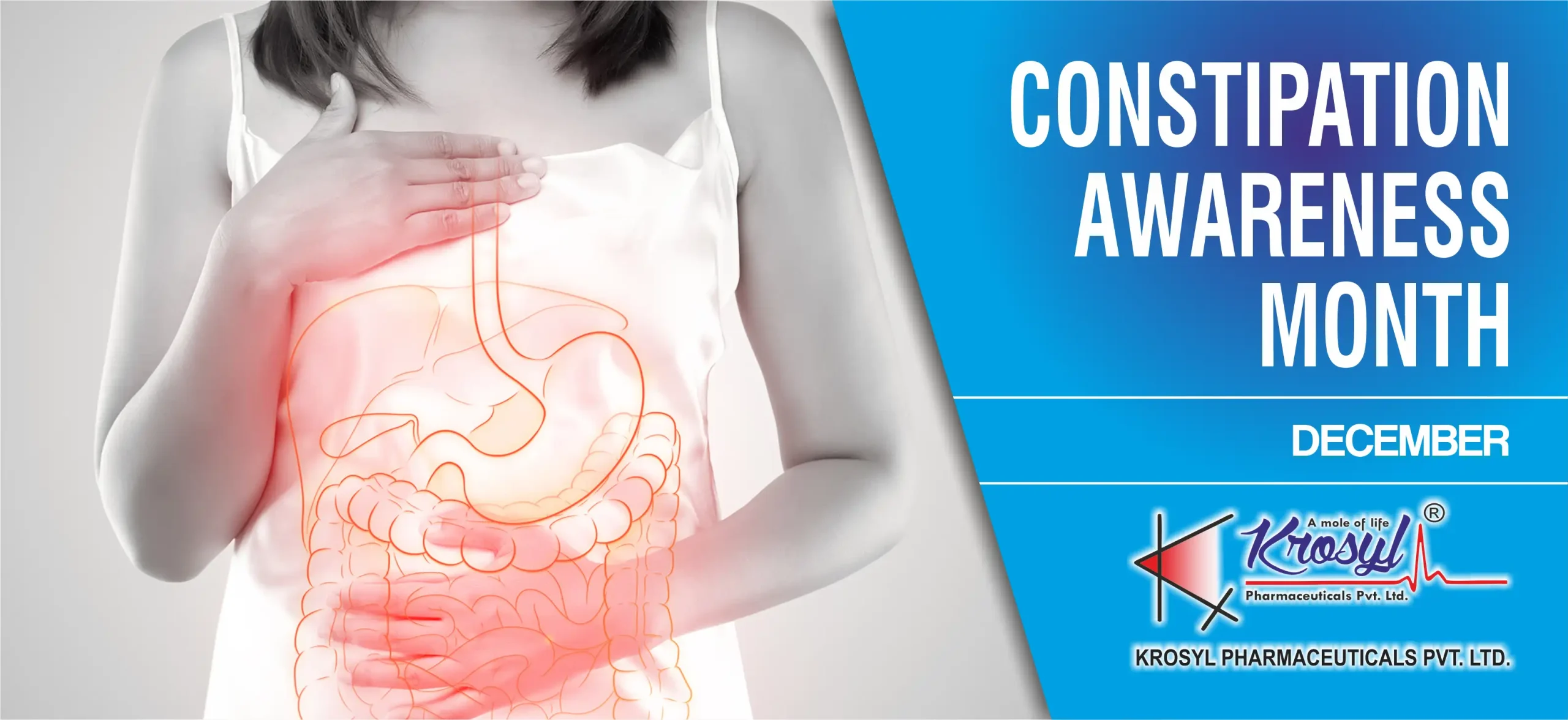
Table of Contents :
- Introduction
- Description & Importance about Constipation Awareness Month
- What is Constipation
- Signs and Symptoms of Constipation
- Constipation Causes
- Myths Linked to Constipation
- Tips to treat Constipation
Constipation Awareness Month, a global healthcare event, that has been observed annually throughout December.
Introduction:
Constipation is a common yet often overlooked health concern that affects millions of people worldwide. In an effort to educate and raise awareness about this discomforting condition, the medical community designates the month of December as Constipation Awareness Month. This dedicated time serves as a reminder to understand the importance of digestive health and encourages individuals to take proactive steps toward prevention and treatment.
1) Description & Importance about Constipation Awareness Month:
Constipation Awareness Month is an annual observance aimed at educating the public about the significance of maintaining a healthy digestive system. Throughout December, healthcare professionals, organizations, and communities come together to share information, dispel myths, and promote lifestyle changes that can alleviate and prevent constipation.
While constipation may seem like a minor inconvenience, it can have a significant impact on one’s overall well-being. Constipation Awareness Month highlights the importance of recognizing and addressing this condition early on to prevent complications and improve the quality of life for those affected.
2) What is Constipation:
Constipation is a digestive issue characterized by infrequent bowel movements, difficulty passing stools, or a sense of incomplete evacuation. It often results from the slow movement of stool through the colon, leading to increased water absorption and hardened, difficult-to-pass stools.
3) Signs and Symptoms of Constipation:
Common signs and symptoms of constipation include:
- Infrequent bowel movements
- Straining during bowel movements
- Hard or lumpy stools
- Feeling of incomplete evacuation
- Abdominal discomfort or bloating
4) Constipation Causes:
Several factors can contribute to constipation, including:
- Inadequate fiber intake
- Dehydration
- Lack of physical activity
- Ignoring the urge to have a bowel movement
- Certain medications
- Medical conditions such as irritable bowel syndrome (IBS) or hypothyroidism
5) Myths Linked to Constipation:
Myth 1 – Only the Elderly Experience Constipation – Constipation can affect individuals of all ages, not just the elderly, as factors like diet and lifestyle play a significant role.
Myth 2 -Constipation is a Sign of a Dirty or Unhealthy Lifestyle – Constipation is primarily influenced by diet, hydration, and physical activity, not personal hygiene alone.
Myth 3 – Laxatives Are a Quick and Long-Term Solution – Excessive use of laxatives can lead to dependence and is not a sustainable, long-term solution for constipation.
Myth 4: Constipation Is Always a Serious Medical Issue – Occasional constipation is common and may not always indicate a serious medical problem, but persistent symptoms should be evaluated by a healthcare professional.
Myth 5: Ignoring the Urge to Have a Bowel Movement is Harmless – Consistently ignoring the urge to have a bowel movement can contribute to constipation by allowing stool to become harder and more difficult to pass.
Myth 6: Only a low-Fiber Diet Can Cause Constipation – While inadequate fiber intake is a common cause, other factors like dehydration, lack of exercise, and certain medications can also contribute to constipation.
6) Tips to treat Constipation:
Constipation can often be managed and treated through lifestyle changes and home remedies, including:
- Increasing fiber intake through fruits, vegetables, and whole grains
- Staying hydrated by drinking an adequate amount of water
- Regular physical activity to stimulate bowel movements
- Establishing a consistent bathroom routine
- Avoiding excessive use of laxatives, which can lead to dependence
In more severe cases, medical intervention may be necessary, and individuals experiencing persistent or severe constipation should consult with a healthcare professional for proper evaluation and guidance.
Conclusion:
Constipation Awareness Month serves as a valuable opportunity to promote open conversations about digestive health and encourage proactive steps to prevent and manage constipation. By dispelling myths, understanding the causes and symptoms, and adopting healthy lifestyle habits, individuals can take control of their digestive well-being and enhance their overall quality of life.
